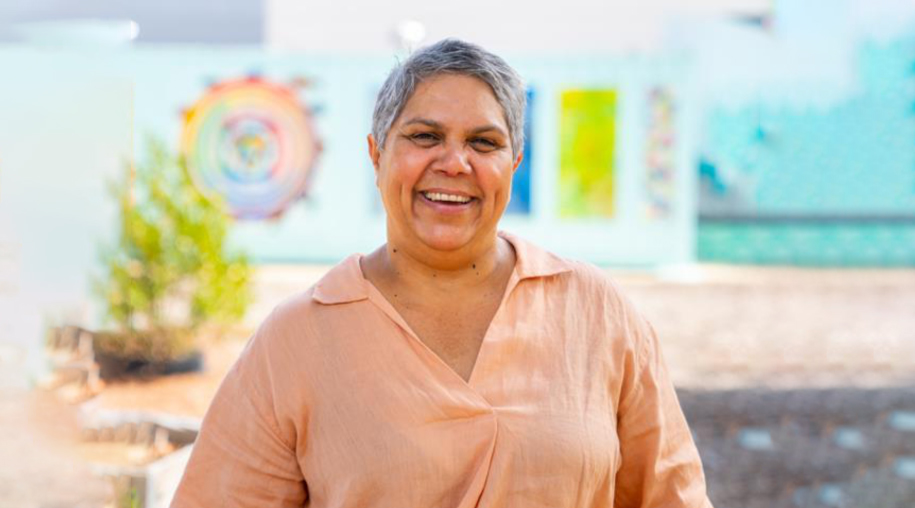This is audio part of the Yarning about Stroke collection. Listen to more stories from mob.
Kerri Colgate is a Noongar and Yamatji woman from the Whadjuk and Yuat clans and lives on Whadjuk Noongar Country in Boorloo, Perth. Kerri has her own part-time consultancy business specialising in disability support, capacity building and general cultural consultancy. She talks about her experience working in hospital and the importance of building relationships with mob.
She says "I think there's a role that, it's for everybody, it's not only for Aboriginal liaison teams in hospitals, but it's also part of doctors and nurses and all those other sort of health workers working with people when they do come in for stroke in being able to sort of empower and educate people."
Transcript
From my experience working in the hospital, I worked in a hospital at one of our acute hospitals in a suburb where there was a high volume of Aboriginal people that predominantly used the hospital. And through the time we would see numbers coming through with people that would have a stroke and what I noticed a lot was the very low health literacy on many of our mob that come through and we know that.
So whose responsibility I guess is around that systemic advocacy in terms of navigating people to those, you know, many supports out in the community when it comes to rehabilitation and reconnecting out in the community.
And I think there's a role that, it's for everybody, it's not only for Aboriginal liaison teams in hospitals, but it's also part of, you know, doctors and nurses and all those other sort of health workers working with people when they do come in for stroke in being able to sort of empower and educate people.
First in understanding what has actually happened, having that clinical yarning around, sharing stories about one another, learning about that person, where they've come from, what some of the cultural responsibilities and obligations they had.
And having a yarn about how potentially their life can look a little bit different and to have those real sort of genuine yarns around that.
And I think that was a really big thing that didn't sort of ... we understand how busy it gets in hospitals and particularly health settings. Where people say, you know, I'm time poor. I don't have time to yarn about, you know, build relationships and do all of that.
But I think it's, I think things have to change because we don't otherwise we won't close that gap. And we will continue to be behind in terms of getting better and getting our people better and stuff like that.
So I think responsibility is us all.
So I think if there's some push and advocacy in terms of, encouraging relationships right at the beginning and learning about people coming through and having that relational stuff and not so just clinical focused because we do lose that real human connection. And that human connection, as far as I'm concerned, is the key to us all being better in any recovery at the end of the day.






